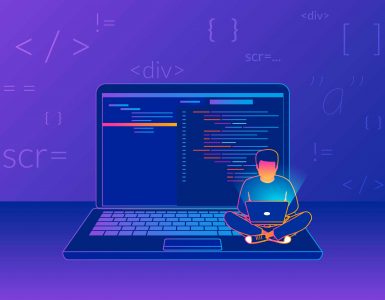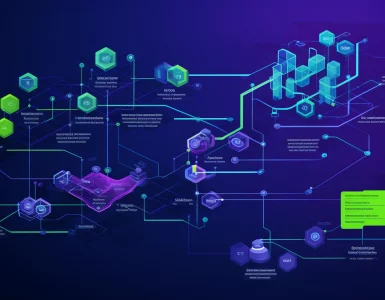Django, a high-level Python web framework, is renowned for its versatility, scalability, and user-friendly development process.
It allows developers to develop web applications with ease. One of the reasons for Django’s popularity is its vast ecosystem of packages, which are essentially pre-built modules that extend Django’s functionality.
In this blog post, we’ll delve into the top 10 Django packages that every developer should consider learning. These packages can help you supercharge your Django projects, making your development process more efficient and your applications more powerful.
What are Django Packages?
Django packages, also known as Django apps or plugins, are reusable pieces of code that enhance the functionality of a Django project. They provide pre-built features and tools that can be seamlessly integrated into your web application, saving you valuable development time.
These packages can address a wide range of needs, including RESTful API development, debugging, user authentication, data filtering, search functionality, access control, and more.
Why Should You Learn Django Packages?
Learning Django packages is essential for Django developers, as they can significantly boost productivity, streamline development, and offer solutions to common challenges. Rather than reinventing the wheel with every project, you can leverage existing packages to add features and capabilities quickly.
Benefits of Using Django Packages:
- Faster Development: By using Django packages, you can reduce development time and focus on the core aspects of your application.
- Code Reusability: Packages are designed for reuse across multiple projects, reducing redundant code.
- Community Support: Many Django packages have a dedicated community that regularly maintains and updates them.
- Scalability: Packages often include features that are essential for scaling your application.
Now, let’s explore the top 10 Django packages and understand when and why you should consider using them.
What are the top 10 Django Packages That YOu Should Learn in 2023?
Django REST Framework
Django REST Framework (DRF) is a powerful and flexible toolkit for building Web APIs. It simplifies the creation of RESTful APIs, making it easier to handle resources, authentication, serialization, and more.
Benefits of using Django REST Framework
- Streamlined API development.
- Built-in support for authentication and serialization.
- Robust documentation and community support.
- Customizable serialization for complex data structures.
When to use Django REST Framework?
If your project requires RESTful APIs, user authentication, serialization, and the creation of a comprehensive API for your web application.
Django Sentry
Django Sentry is a debugging and error-tracking tool. It helps you monitor and diagnose issues in your application by providing detailed error reports.
Benefits of using Django Sentry
- Real-time error tracking and reporting.
- Code-level insight into issues.
- Improved application stability.
- Detailed error reports with traceback information.
When to use Django Sentry?
Use it in all your projects to ensure early detection and resolution of errors, enhancing the overall stability of your web applications.
Django Celery
Django Celery is a distributed task queue system that allows you to run asynchronous tasks in the background. It’s perfect for handling time-consuming or resource-intensive processes.
Benefits of using Django Celery
- Efficient handling of asynchronous tasks.
- Scalability and improved performance.
- Automatic retry and error handling.
- Support for task prioritization and scheduling.
When to use Django Celery?
When your project needs background tasks like email sending, image processing, periodic data updates, or any task that doesn’t need to be executed immediately as part of the main request/response cycle.
Django Filter
Django Filter simplifies the creation of dynamic query filters. It provides a user-friendly way to filter and sort data in Django applications.
Benefits of using Django Filter
- Quick and easy filtering of querysets.
- Enhances the user experience with dynamic filtering options.
- Reduces the need for custom filter implementations.
- Supports complex filtering options for different data models.
When to use Django Filter?
When your project involves extensive data filtering and searching, or when you want to offer a user-friendly interface for data manipulation.
Django Guardian
Django Guardian is an authorization and access control package. It allows you to implement fine-grained, object-level permissions in your Django applications.
Benefits of using Django Guardian
- Granular control over user permissions.
- Enhanced security and RBAC (Role-Based Access Control).
- Custom permission management.
- Support for complex permission handling.
When to use Django Guardian?
When your project requires complex user permission management, especially in content management systems, e-commerce platforms, or any application where access control is crucial.
Django Haystack
Django Haystack is a search framework for Django that integrates with various search engines like Elasticsearch, Solr, and Whoosh. It simplifies the implementation of search functionality in your application.
Benefits of using Django Haystack
- Full-text search capabilities.
- Scalability and speed in searching.
- Integration with various search engines.
- Faceted search for fine-grained filtering.
When to use Django Haystack?
When your project involves searching and indexing large sets of data, such as e-commerce websites, directories, or any application where robust search functionality is essential.
Django Social Auth
Django Social Auth simplifies social media authentication in your Django project. It provides easy integration with popular social platforms like Facebook, Twitter, Google, and more.
Benefits of using Django Social Auth
- Streamlined social media login and registration.
- Reduces the development effort for social authentication.
- Offers a seamless user experience.
- Supports various social platforms with customizable configurations.
When to use Django Social Auth?
When your project requires social media authentication and user registration, particularly for applications that want to provide users with a variety of login options.
Django Extensions
Django Extensions represents a collection of custom extensions and management commands for Django. It enhances Django’s functionality by providing additional utilities and features.
Benefits of using Django Extensions
- A wide array of additional management commands.
- Improved development experience.
- Enhanced debugging and profiling tools.
- Convenient shortcuts for common tasks.
When to use Django Extensions?
Incorporate it into your development process to streamline management and debugging. Use it in projects where you want to leverage additional Django utilities.
Django CORS Headers
Django CORS Headers allows you to handle Cross-Origin Resource Sharing (CORS) in your Django application, making it easier to interact with APIs and services hosted on different domains.
Benefits of using Django CORS Headers
- Effortless configuration of CORS policies.
- Seamless integration with various front-end applications.
- Improved security for cross-domain requests.
When to use Django CORS Headers
When your project involves interactions with frontend applications or APIs hosted on different domains.
Django Crispy Forms
Django Crispy Forms is a powerful form rendering tool. It helps you manage and style forms efficiently, providing better control over form layout and presentation.
Benefits of using Django Crispy Forms
- Simplified form rendering with customizable templates.
- Enhanced form styling and layout control.
- Compatibility with various front-end frameworks.
When to use Django Crispy Forms?
When your project requires improved form rendering and user-friendly form design.
Tips for Learning Django Packages
- Read the official documentation for each package to understand their capabilities.
- Explore sample projects or tutorials that demonstrate how to use these packages.
- Join Django community forums and seek advice from experienced developers.
- Stay updated with new releases and updates for the packages you use.
- Experiment with different packages to find the best fit for your project’s needs.
Wrapping Up
Incorporating these Django packages into your development arsenal will undoubtedly make your journey as a Django developer smoother and more successful. Happy coding!
Frequently Asked Questions
Which Django packages should I learn first?
I recommend that you start by learning DRF and Django Allauth. These packages are essential for building REST APIs and adding user authentication and social integration to your applications.
Once you have learned DRF and Django Allauth, you can then learn about the other packages on this list. These packages can help you to improve the performance, security, and functionality of your Django applications.
Where can I learn more about Django packages?
Here are some resources for learning more about Django packages:
- Django Packages: https://djangopackages.org/
- Django Packages on GitHub: https://github.com/djangopackages/djangopackages
- Django Packages Documentation: https://docs.djangoproject.com/en/4.2/
Is there anything else I should know about Django packages?
Yes, here are a few additional tips:
- Before installing a Django package, be sure to read the documentation carefully to make sure that it is compatible with your version of Django and that it meets your needs.
- Not all Django packages are created equal. Some packages are well-maintained and have a large community of users, while others are not. It is important to do your research before installing a Django package.
- When using Django packages, be sure to follow the best practices for development and security. This includes using version control, testing your code, and keeping your Django applications up to date.






Add comment